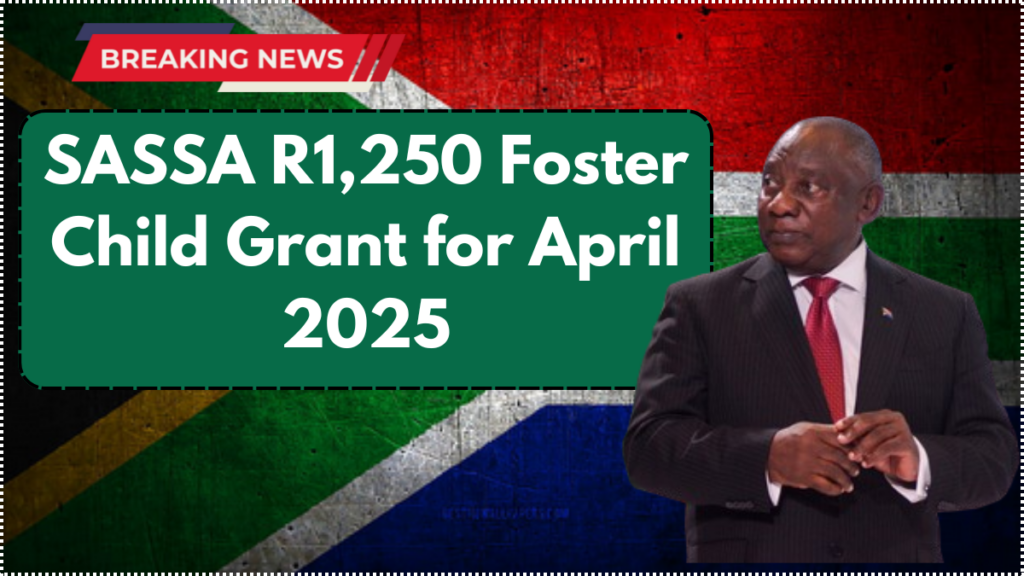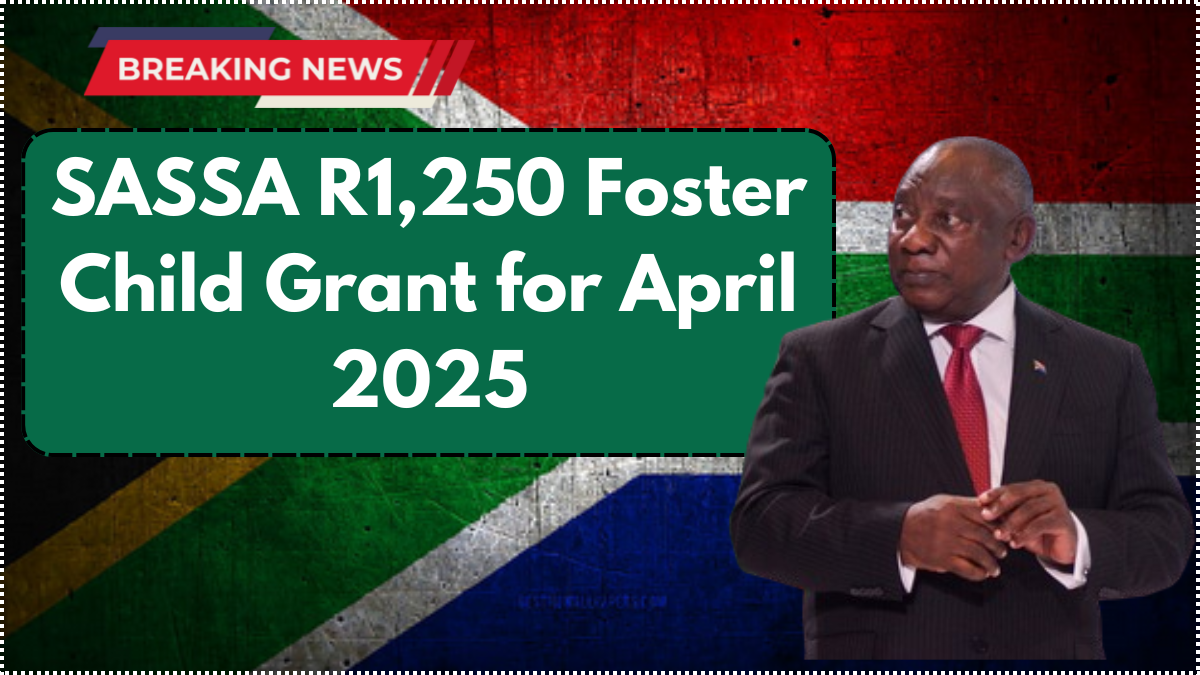The South African Social Security Agency (SASSA) offers the Foster Child Grant to provide financial assistance to foster parents, ensuring they can adequately meet the needs of children placed in their care. This grant is designed to support expenses related to nutrition, education, healthcare, and clothing, thereby promoting a stable and nurturing environment for foster children.

Key Details of the Foster Child Grant
| Aspect | Information |
|---|---|
| Grant Amount | R1,250 per child per month |
| Eligibility | Legal foster parents with a valid court order |
| Required Documents | South African ID, child’s birth certificate, court order, refugee ID (if applicable) |
| Payment Methods | Bank deposit, Postbank, cash collection, or institutional payment |
| Processing Time | Up to three months (includes backdated payments) |
| Review Period | Every two years or upon court order expiration |
| Appeal Process | Available through the Department of Social Development |
| Official Website | www.sassa.gov.za |
Significance of the Foster Child Grant
The Foster Child Grant plays a pivotal role in child welfare by:
-
Addressing Basic Needs: Assists in covering essential expenses such as food, healthcare, clothing, and education.
-
Providing Stability: Facilitates the creation of a secure and supportive home environment for foster children.
-
Encouraging Legal Foster Care: Supports formally recognized foster arrangements, ensuring legal protection for children.
-
Enhancing Child Development: Contributes to the emotional, social, and educational growth of the child.
Eligibility Criteria for the Foster Child Grant
To qualify for this grant, applicants must:
-
Have a child legally placed in their foster care under a court order.
-
Ensure both the foster parent and child are South African citizens, permanent residents, or recognized refugees.
-
Confirm the child is under 18 years of age.
-
Reside with the child within South Africa.
Notably, there is no means test for this grant, as eligibility is based on legal responsibility rather than financial need.
Application Process for the Foster Child Grant
Applying for the Foster Child Grant is free and involves the following steps:
-
Visit a SASSA Office: Locate and visit the nearest SASSA office.
-
Complete the Application Form: Fill out the application in person with assistance from a SASSA officer. Applications by third parties are not accepted.
-
Submit Necessary Documents: Provide the following:
-
A valid South African ID or refugee ID (if applicable).
-
The child’s birth certificate.
-
A legal court order confirming the foster care placement.
-
If identification documents are unavailable, an affidavit and a statement from a community leader (such as a teacher or social worker) can be provided.
-
-
Obtain an Application Receipt: After submission, receive a receipt as proof of application. Retain this for future reference.
Payment Options
Foster parents can receive grant payments through various methods:
-
Cash Collection: Collect cash at designated SASSA pay points.
-
Bank Transfer: Funds can be deposited into a personal bank account or Postbank account.
-
Institutional Payments: Payments can be directed to registered welfare organizations if the child is under institutional care.
If the foster parent cannot collect the payment personally, they can authorize a representative using a power of attorney or appoint a procurator.
Grant Review and Renewal
The Foster Child Grant undergoes periodic reviews to ensure continued eligibility:
-
Review Frequency: Every two years or upon the expiration of the court order.
-
Notification: Beneficiaries receive advance notice (three months before a scheduled review).
-
Life Certificates: Annual life certificates are required for payments via bank or institutional accounts.
Failure to comply with the review process may lead to temporary suspension of the grant.
Reasons for Grant Suspension or Termination
The grant may be suspended due to:
-
Changes in foster care arrangements, such as new legal guardianship.
-
Failure to complete a scheduled review.
-
Suspected fraud or false information in the application.
The grant will lapse if:
-
The foster child turns 18 years old.
-
The foster parent or child passes away.
-
The child is placed in a government-run care facility.
-
The grant remains unclaimed for three consecutive months.
Appealing a Rejected Application
If a grant application is denied, foster parents can challenge the decision through the Department of Social Development by:
-
Submitting an appeal request along with any supporting documents.
-
Awaiting review, which may take up to 90 days for a final decision.
Frequently Asked Questions (FAQs)
1. Can a foster parent receive grants for multiple children?
Yes, provided each child has a legal court order, the foster parent can receive a grant for each foster child.
2. What happens when a foster child turns 18?
The grant is discontinued at 18 unless the child qualifies for additional support, such as a disability or educational grant.
3. How long does the application process take?
Processing can take up to three months. If approved, payments will be backdated to the date the court order was issued.
need.
For More Information Click Here
Pari is a passionate writer known for captivating stories that blend imagination and reality. Inspired by travel, history, and everyday moments, Pari crafts narratives that resonate deeply with readers.
